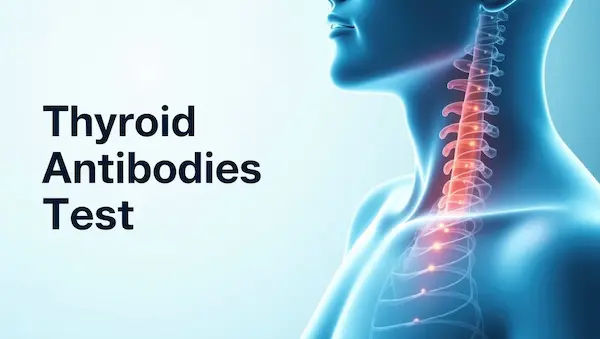Lab Tests for Gynecomastia Diagnosis in Males
Discover the key lab tests for diagnosing gynecomastia in males, including hormone, thyroid, and liver function tests. Learn causes, symptoms, and when to seek help.

Written by Dr. Siri Nallapu
Reviewed by Dr. J T Hema Pratima MBBS, Fellowship in Diabetes Mellitus
Last updated on 8th Aug, 2025

Introduction
Gynecomastia is a condition where males develop enlarged breast tissue, which can sometimes cause discomfort or concern. While it is often harmless, it may sometimes indicate an underlying hormonal imbalance or other health issue. If you or someone you know is experiencing this, understanding the diagnosis process, especially lab tests, can help ease worries and guide the next steps.
What is Gynecomastia?
Gynecomastia occurs when there is an imbalance between the hormones estrogen (which promotes breast tissue growth) and testosterone (which counteracts it). This imbalance can lead to swelling in one or both breasts. It can affect males of any age—newborns, adolescents, and older men—due to natural hormonal changes. However, persistent or painful cases may require medical evaluation.
Common Symptoms of Gynecomastia
The common symptoms of Gynecomastia are:
- Swollen or tender breast tissue
- A firm, rubbery lump under the nipple
- Sometimes, nipple discharge (rare but should be checked)
When Should You Get Tested?
Not all cases of gynecomastia need medical tests. However, you should consider lab tests if:
- The swelling is painful or growing rapidly.
- It persists beyond puberty (in adolescents).
- It appears suddenly in adulthood without a clear cause.
- You notice other symptoms like weight loss, fatigue, or testicular changes.
Lab Tests for Gynecomastia Diagnosis
To determine the cause of gynecomastia, doctors may recommend blood tests to check hormone levels and rule out underlying conditions. Common lab tests include:
1. Hormone Level Tests
- Testosterone & Estrogen Levels: Low testosterone or high estrogen can cause breast enlargement.
- Luteinizing Hormone (LH) & Follicle-Stimulating Hormone (FSH): Helps identify testicular or pituitary gland issues.
- Prolactin: High levels may indicate a pituitary problem.
- Human Chorionic Gonadotropin (hCG): Elevated levels could suggest a testicular tumour.
2. Liver and Kidney Function Tests
- Liver or kidney disease can affect hormone metabolism, leading to gynecomastia.
3. Thyroid Function Tests
- An overactive or underactive thyroid can contribute to hormonal imbalances.
4. Additional Tests (If Needed)
- Karyotyping (Genetic Testing): Rarely, genetic conditions like Klinefelter syndrome may be checked.
- Imaging (Ultrasound/Mammogram): To rule out breast cancer (very rare in men).
What Causes Gynecomastia?
Several factors can contribute to gynecomastia, including:
- Natural Hormonal Changes (puberty, ageing)
- Medications (steroids, anti-androgens, some antidepressants)
- Health Conditions (liver disease, kidney failure, hyperthyroidism)
- Lifestyle Factors (excessive alcohol, anabolic steroid use)
Consult a Top Physician For More Health Benefits
Managing Gynecomastia
1. Lifestyle Changes
- Healthy Diet & Exercise: Losing excess body fat can reduce estrogen levels.
- Avoid Alcohol & Drugs: Some substances worsen hormonal imbalances.
- Review Medications: If a medication is the cause, your doctor may adjust it.
2. Medical Treatments
- Hormone Therapy: If low testosterone is the cause, supplements may help.
- Surgery (in severe cases): If breast tissue doesn’t shrink naturally, removal may be an option.
When to See a Doctor?
If you notice persistent breast swelling, pain, or other concerning symptoms, it’s best to consult a doctor. Early diagnosis helps rule out serious conditions and provides peace of mind.
Book a Lab Test or Consultation with Apollo 24|7
If you suspect gynecomastia, Apollo 24|7 offers convenient hormone testing and expert consultations from the comfort of your home. You can:
- Schedule a blood test to check hormone levels.
- Consult an endocrinologist for personalised advice.
Visit Apollo 24|7’s website or download the app to book your test today!
Get Your Health Assessed Here
Conclusion
Gynecomastia is usually not a serious condition, but understanding its causes and getting the right tests can help manage it effectively. If you’re concerned, don’t hesitate to seek medical advice; early detection ensures the best care.
Consult a Top Physician For More Health Benefits
Consult a Top Physician For More Health Benefits

Dr. Md Yusuf Shareef
General Practitioner
8 Years • MBBS
Hyderabad
Apollo 24|7 Clinic, Hyderabad

Dr. D Bhanu Prakash
General Practitioner
10 Years • MBBS, AFIH, Advanced certificate in critical care medicine, Fellowship in critical care medicine
Hyderabad
Apollo 24|7 Clinic, Hyderabad

Dr. Syed Ismail Ali
General Practitioner
7 Years • MBBS
Hyderabad
Apollo 24|7 Clinic, Hyderabad

Dr Summaiya Banu
General Practitioner
8 Years • MBBS
Hyderabad
Apollo 24|7 Clinic, Hyderabad
(250+ Patients)

Dr. Shubham Chauhan
General Practitioner
4 Years • MBBS
Lucknow
Apollo 24|7 Clinic - Uttar Pradesh, Lucknow
Consult a Top Physician For More Health Benefits

Dr. Md Yusuf Shareef
General Practitioner
8 Years • MBBS
Hyderabad
Apollo 24|7 Clinic, Hyderabad

Dr. D Bhanu Prakash
General Practitioner
10 Years • MBBS, AFIH, Advanced certificate in critical care medicine, Fellowship in critical care medicine
Hyderabad
Apollo 24|7 Clinic, Hyderabad

Dr. Syed Ismail Ali
General Practitioner
7 Years • MBBS
Hyderabad
Apollo 24|7 Clinic, Hyderabad

Dr Summaiya Banu
General Practitioner
8 Years • MBBS
Hyderabad
Apollo 24|7 Clinic, Hyderabad
(250+ Patients)

Dr. Shubham Chauhan
General Practitioner
4 Years • MBBS
Lucknow
Apollo 24|7 Clinic - Uttar Pradesh, Lucknow
Get Your Health Assessed Here
₹979(₹2447)60% off
₹699(₹1748)60% off
₹699(₹1748)60% off
₹699(₹1748)60% off
₹999(₹2497)60% off
₹709(₹1772)60% off





.webp)
